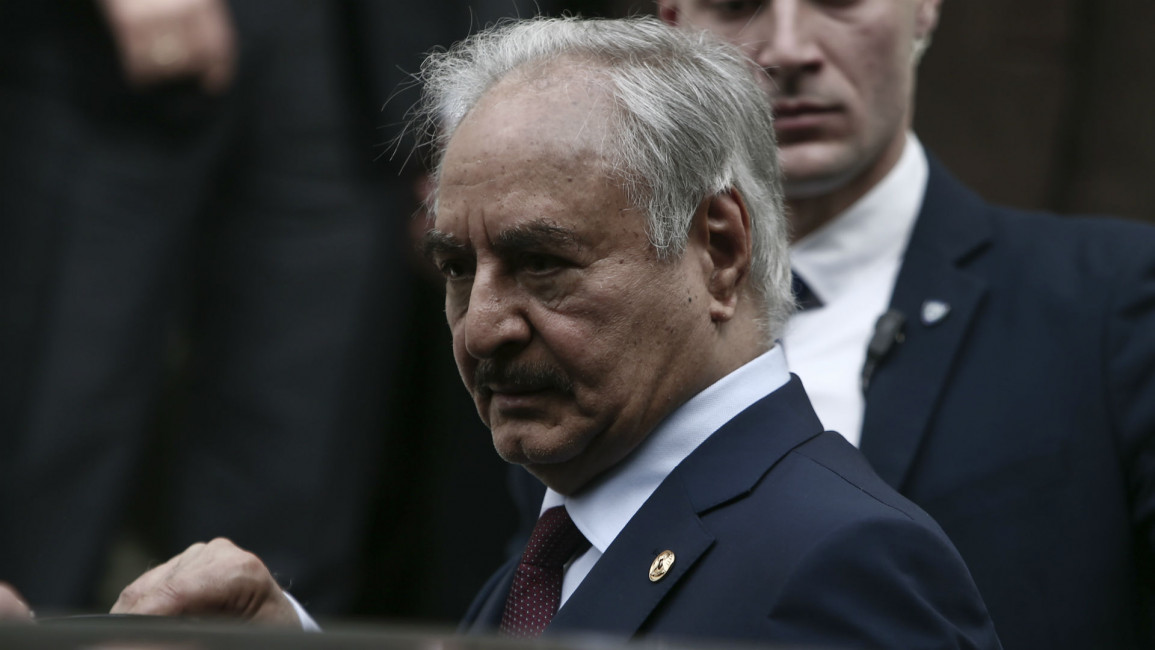Haftar given July 20 deadline to respond in US war crimes lawsuit
Libyan warlord Khalifa Haftar has been given a deadline of July 20 by a court in the US state of Virginia to respond to alleged war crimes he is accused of being responsible for during the country’s civil war, according to a lawyer for the families of victims.
Mark Zaid, who represented the US whistle-blowers behind the first Trump impeachment trial, tweeted the development on Wednesday, warning that Haftar risked default if he failed to respond to by that date.
He also said that he notified the warlord of plans to take his own deposition "within 45 days" in the lawsuit for his clients.
This comes as a US district judge ruled last Thursday that Haftar cannot claim head-of-state immunity as a defence in cases accusing him of atrocities in Libya's civil war, The Associated Press have reported.
Haftar, a former lieutenant under Libyan dictator Muammar Gaddafi who later became the head of the self-styled Libyan National Army, is facing three separate federal lawsuits filed in a district court in Alexandria.
Families of victims allege that Haftar's forces killed or tortured their loved ones during the civil war that erupted following the fall of Gaddafi.
Today, we notified #Libyan warlord #KhalifahHifter we plan to take his deposition w/i 45 days in our civil lawsuit for his victims. #Accountability #Justice
— Mark S. Zaid (@MarkSZaidEsq) July 7, 2021
Court informed him he has until July 20, 2021, to Answer our lawsuit or he will be in default.https://t.co/rPKbfPcHW2
Haftar defected to the US during the 1980s and spent many years living in northern Virginia, receiving dual citizenship and acquiring property through the north of the US state. The lawsuits are seeking millions of dollars in damages that could be recovered from those properties.
In court papers, Haftar claimed that he is immune from lawsuits because he is a head of state. He also said the cases should be dismissed since the issue of apportioning blame in the country's civil war is a "political question" that must be deferred to the executive branch.
But on Thursday, US District Judge Leonie Brinkema ruled against those claims. She said that she asked the US State Department on two occasions whether it wanted to assert an interest in the case, but that it declined both times.
Agreeing with Kevin Carroll, a lawyer for Muna al-Suyid and her family who say her brothers were killed by Haftar’s forces in Benghazi in 2014, Brinkema conceded that if the State Department refused to recognise Haftar as a head of state, she would be out of bounds as a judge to let him make that assertion.
Brinkema's ruling does not affect the outcome of the case, with the plaintiffs still required to prove their allegations at a trial and as well as refute claims that the victims were not armed combatants.



